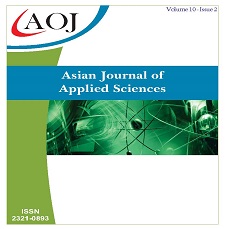Ecological Modernization and Environmental Education: An Approach to Social Change
DOI:
https://doi.org/10.24203/ajas.v10i2.6915Keywords:
Environmental crisis, ecological modernization, policies, Environmental EducationAbstract
Several approaches have drawn attention to the implications of environmental problems. For instance, estimates indicate that up to 132 million people may fall into poverty by 2030 due to the manifold effects of climate change. This paper focuses on this theme. It aims to discuss the concept of ecological modernization and the development of Environmental Education according to its perspective. Ecological modernization takes into account the structural character of the environmental problematic and provides bases for the development of public policies, such as the environmental education policy. Conclusively, among other analytical considerations, the paper highlights that Environmental Education must develop a conception of ecology that establishes a link between the natural world and the social world, as well as it must also develop an interdisciplinary approach to ecological problems.
References
Beck, U. (1994). Beck, U., Giddens, A., Lash, S. (Eds.), 1994. Reflexive modernization, politics, tradition and aesthetics in the modern social order. Cambridge: Polity Press.
Beck, U. (1992). Risk society: towards a new modernity. London: Sage, 1992.
Butel, F. H. Ecological modernization as social theory. Geoforum 31, 1, 57-65.
Christoff, P. (1996). Ecological Modernisation, Ecological Modernities. Environmental Politics, 5(3), 476-500.
Giddens, A. (1998). Third way: the renewal of social democracy. Cambridge: Polity Press.
Glyn, P. J; Cadman, T.; Maraseni, T. N. (2017). Business, Organized Labour and Climate Policy: Forging a Role at the Negotiating Table. Chelteham: Edward Elgar.
Jänicke, M. (2008). Ecological modernisation: new perspectives. Journal of Cleaner Production, 16, 557-565.
Hajer, M. A. (1995). The politics of environmental discourse. Oxford: Clarendon Press.
Howes, M., McKenzie, M., Gleeson, B., Gray., R., Byrne, J., & Daniels, P. (2010). Adapting ecological modernization to the Australian context. Journal of Integrative Environmental Sciences, 7(1), 5-21.
Mol, A. (1995). The Refinement of Production: Ecological Modernization Theory and the Chemical Industry. Utrecht, Netherlands: Van Arkel.
Simon, J. L. & Kahn, H. (1984). The resourceful earth. Oxford: Blackwell.
UNESCO (1977). Intergovernamental Conference on Environmental Education: Final Report. Paris: UNESCO.
United Nations. (1987). Brundtland Report: or common future. New York: UN.
World Bank. Overview reversals fortune: poverty and shared prosperity 2020. Washington, DC: World Bank.
Downloads
Published
Issue
Section
License
Copyright (c) 2022 Ivonaldo Leite

This work is licensed under a Creative Commons Attribution-NonCommercial 4.0 International License.
- Papers must be submitted on the understanding that they have not been published elsewhere (except in the form of an abstract or as part of a published lecture, review, or thesis) and are not currently under consideration by another journal published by any other publisher.
- It is also the authors responsibility to ensure that the articles emanating from a particular source are submitted with the necessary approval.
- The authors warrant that the paper is original and that he/she is the author of the paper, except for material that is clearly identified as to its original source, with permission notices from the copyright owners where required.
- The authors ensure that all the references carefully and they are accurate in the text as well as in the list of references (and vice versa).
- Authors retain copyright and grant the journal right of first publication with the work simultaneously licensed under a Attribution-NonCommercial 4.0 International that allows others to share the work with an acknowledgement of the work's authorship and initial publication in this journal.
- Authors are able to enter into separate, additional contractual arrangements for the non-exclusive distribution of the journal's published version of the work (e.g., post it to an institutional repository or publish it in a book), with an acknowledgement of its initial publication in this journal.
- Authors are permitted and encouraged to post their work online (e.g., in institutional repositories or on their website) prior to and during the submission process, as it can lead to productive exchanges, as well as earlier and greater citation of published work (See The Effect of Open Access).
- The journal/publisher is not responsible for subsequent uses of the work. It is the author's responsibility to bring an infringement action if so desired by the author.


